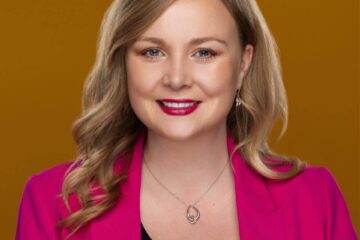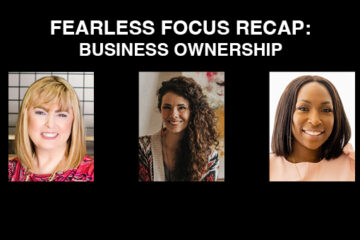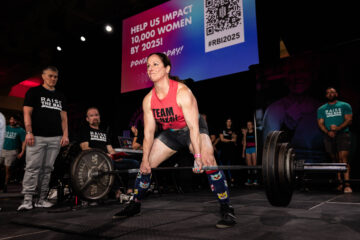By Emily Blobaum
Cheltzie Miller-Bailey had big dreams when she was young – she would have her doctorate by age 30 and would become a CEO someday.
Growing up in West Des Moines’ Valley Junction neighborhood in a single-parent family that lived below the poverty line, she thought that those milestones were needed to make a difference in the world.
“It was CEO or nothing,” Miller-Bailey remembers. “I thought that was what success was. I thought success equated position, title and power.”
Her family relied on social service agencies and “people with good hearts” to survive and stay afloat, so she wanted to work in a field that would allow her to give back.
“I wanted to live a life of service and help people – because people helped us,” she said.
That mindset led her to the University of Northern Iowa, where she received an undergraduate degree in leisure, youth and human services and a graduate degree in postsecondary education: student affairs. Miller-Bailey was also very much involved with the student activities office, her sorority and with Dance Marathon. Her dreams of becoming a CEO and receiving a doctorate degree eventually faded away, but her passion for working with college students did not.
After college, she landed her “dream job” organizing large-scale campus events at the University of North Texas in 2017.
Four months into her role at UNT, Miller-Bailey realized that as someone who describes herself as ambitious and forward-thinking, she suddenly didn’t know what was next.
“There was a stark acknowledgement of ‘I got my dream job right out of college. Now what?’ My next dream wasn’t to get the next job because I was already there.”
She loved what she did and loved working with the students, but by mid-2018 she started to feel lost.
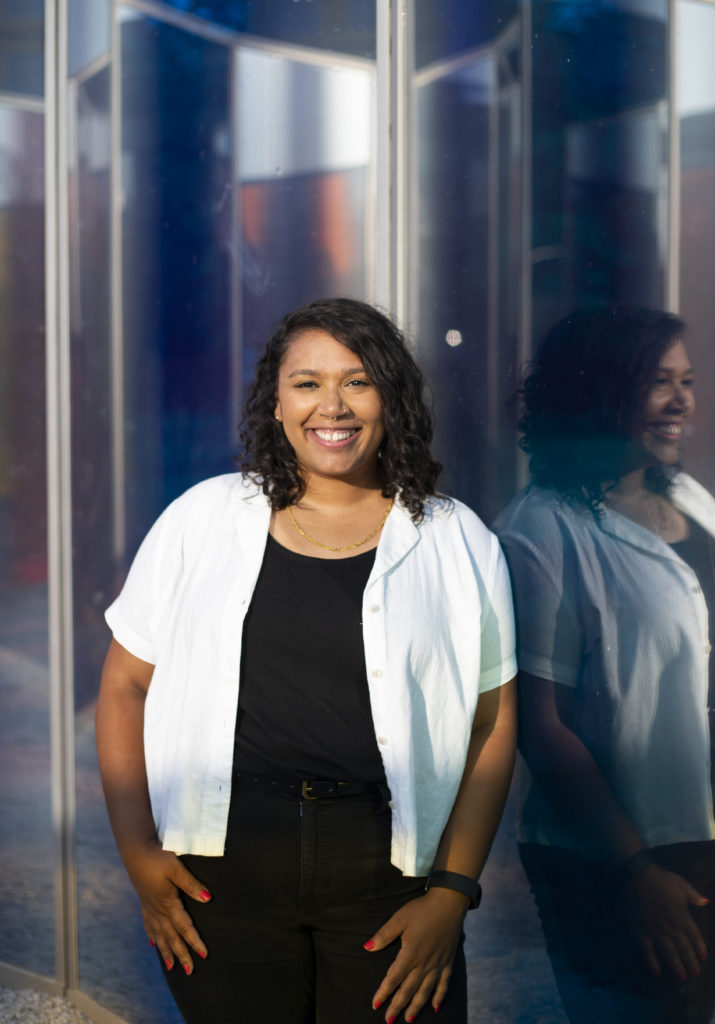
Miller-Bailey was regularly working well over 40 hours a week – during homecoming week she worked nearly 100 hours. She increasingly found herself stuck in the position of being the messenger and middle-woman between students’ wants and her leaders’ decisions.
In one particular instance, Miller-Bailey worked on a student-led initiative to make UNT’s homecoming court process gender-neutral. While it eventually became a reality, initially the answer was no – something that Miller-Bailey had to tell the students.
As a queer person herself, that put her in a tough spot.
“That was probably one of the clearest examples in my early career when my morals, ethics and identity were very clearly not aligned with how my employer was choosing to operate,” she said.
Eventually, work got too heavy. Her anxiety and depression were so bad that she would regularly call her mom and sister in tears, just to gain the motivation to go to work.
“I was on an edge. My choice was to stay in a job that was going to ruin me, or leave and acknowledge that work was killing me,” Miller-Bailey said.
So she did something out of character – in May 2019, she quit.
“I’m always thinking five steps ahead with eight plans in place,” she said. “So to make a choice on behalf of myself without knowing what’s next, that was the wildest thing I ever did for myself.”
During the three-month period that she was unemployed, she was able to take time to refocus on what mattered – an opportunity she recognizes requires privilege.
She knew she had to have a job to live and survive, but what did she want and need from a job?
“The things I used to dream about – the idea of power, title and position – literally almost cost me my life,” Miller-Bailey said. “Hitting rock bottom, I was able to set standards and boundaries for the next places I work.”
Her first priority would be to make sure her health, safety, comfort and overall well-being were attended to.
“I wanted balance, care, compassion and meaning in my work. I wanted to be valued for the person I was. … I wanted a work environment that said, ‘We appreciate the work that you produce and we’re so grateful of who you are.’”
Miller-Bailey is not alone in that desire. In 2018, a Gallup poll found that above everything else, Gen Z and millennial employees – who now make up nearly half of the full-time workforce in the U.S. – want to work for a company that cares about their well-being.
The pandemic and every other drastic event that 2020 brought forth only further highlighted the need for holistic wellness.
The 2020 Women in the Workplace report stated that more than 25% of women are considering downshifting or leaving the workforce entirely. Mothers, senior-level women and Black women all reported higher feelings of burnout, pressure to work more and exhaustion when compared with their male counterparts.
If companies want to successfully bring – and keep – employees, especially those who come from marginalized communities, back to the workforce, they’re going to have to place employees’ mental wellness at the center of their business strategies.
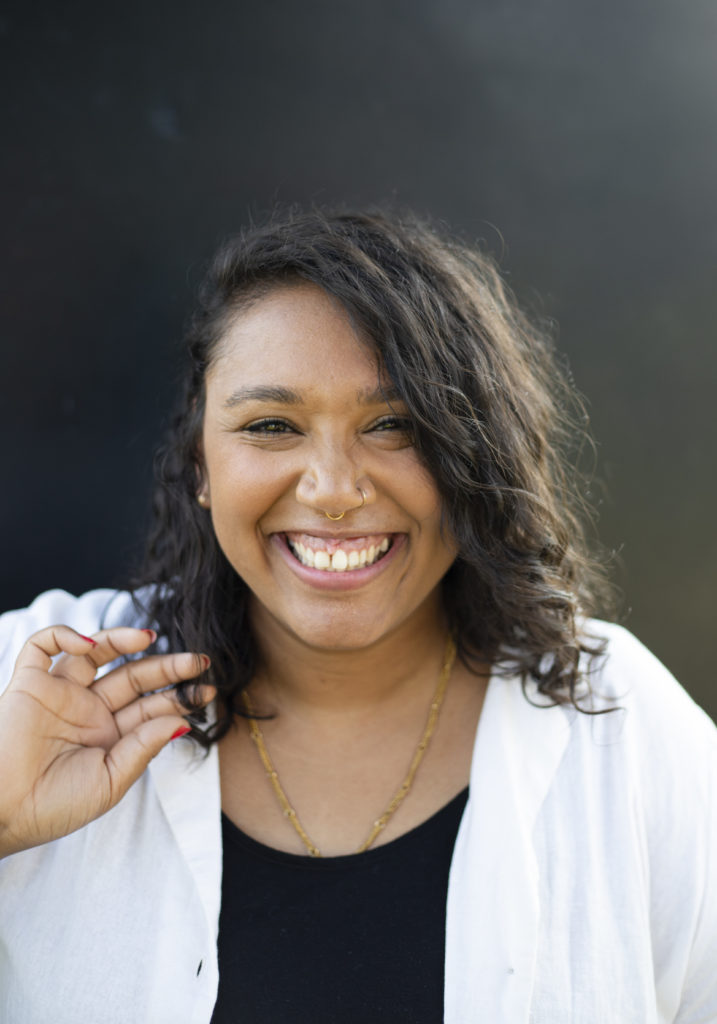
“If a place of work ever required me to do anything to my body, my voice, my appearance, my actions or any part of what is authentically me in order to exist in that space, it could not be a place where I would be able to exist. It seems silly that keeping my septum piercing in is a nonnegotiable, but it’s because it’s significantly more than a nose ring. It’s the value of a human’s bodily autonomy and choice to be themselves. … I don’t ever want to work for a company or organization that believes they have the oversight to tell me what I can and cannot do to succeed in the world.”
Taking time off ultimately changed Miller-Bailey’s opinions and views of workplace culture, what professionalism means and how important self-care is.
“That time gave me the foundation to rebuild a lot of things that were broken and hurt in me to be able to recommit to a position that was going to take a little bit more from me.”
She started at Iowa State in an event planning role in July 2019 – a job where she only worked 40 hours a week, had most weekends off and was home by 5 p.m. She worked in that position for five months before landing her current job as assistant director of the Center for LGBTQIA+ Student Success.
In her role, she works closely with LGBTQ students. In doing so, part of her job is to question and challenge traditional beliefs.
“Traditional is a fallacy in my world and in the queer spaces that I occupy. In order for our lives and people to exist safely, authentically and securely, traditionalism has to be eradicated,” she said.
Earlier this year, Miller-Bailey presented a session at the annual Iowa State Conference on Race and Ethnicity about how the concept of professionalism is used as a prejudice against those who identify as Black, Indigenous, other people of color or LGBTQ.
In it, she talked about how the standards of professionalism are heavily rooted in white supremacy culture.
According to scholars Tema Okun and Keith Jones, American professionalism standards related to dress code, speech, work style and timeliness are based on Western and white cultures. For example, pantsuits are traditionally seen as professional attire, but not saris. The use of Spanglish, Chicano English or African American Vernacular English are often viewed as inappropriate communication in the workplace. Black women with natural hairstyles, like afros, braids or twists, are often perceived as less professional.
“A lot of my traits and identities operate outside of what professionalism standards say is supposed to be correct,” Miller-Bailey said. “The system was not built for women, queer people, trans or nonbinary people, or people of color.
“I thought at one time that being a professional or being committed to my profession meant that I had to give time, energy and capacity to it at my fullest ability,” she said. “When I lost myself in professionalism and the concepts of success like working more, giving more and doing more … those things beat me to the ground.”
Now, she doesn’t see that.
“I still have skills, talents and things to offer and I can be successful and still strive to do things, but the concept [of professionalism] is not the goal. The goal is to be yourself and to do the things that are good for your heart and your mind.
“Positionality doesn’t equate professionalism,” Miller-Bailey said. “I don’t think it’s my job that makes me a professional as much as the characteristics of who I am.”
Words of wisdom
On prioritizing your own well-being: Take time to pause – whether it’s a day, week or just an hour – and assess what your body needs to feel its best, Miller-Bailey said. Once you figure that out, you can figure out solutions and practices that you can advocate for on behalf of yourself. For example, Miller-Bailey recognized that due to digestive issues, the best time for her to eat breakfast is 9:30 or 10 a.m. instead of eating before work. Once she discovered that, she bought a $10 toaster that she keeps in her office so she can prepare a bagel at a time that’s convenient for her.
On dealing with imposter syndrome and other insecurities: Take a moment to examine what’s at the root of your role. What are you supposed to be doing? “To me, that’s not keeping up with the Joneses, impressing people in suits and trying to aspire to something that I know I’m not,” Miller-Bailey said. “My actual work is not the assistant director of LGBTQIA+ Student Success. My work is to make sure LGBTQ students at Iowa State have a place where they can feel affirmed, supported and cared for.
“I think imposter syndrome comes from putting a lot of stake in the big things. … As much as possible, I’ve stopped putting stake in the big things, big people and big titles. I think success and value is focusing on the little things.”
Having a network of friends, peers, mentors or co-workers who believe in you and remind you of your value every day is also crucial. “They tell me that my thoughts matter, the ideas that I have make sense, I belong here, my work makes a difference, people want to hear what I have to say and that my presence brightens their day.”
